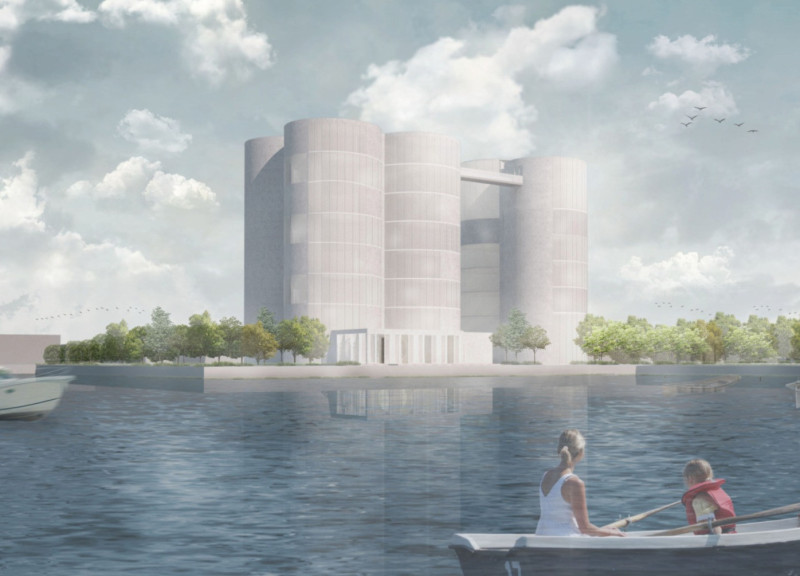5 key facts about this project
The design centers on the adaptation of urban silos in Toronto, Canada, to create affordable housing that responds to the city's increasing demand for living spaces. These structures, traditionally used for industrial purposes, are being reimagined as vibrant environments that encourage community interaction. The overall design concept emphasizes making effective use of vertical space to accommodate a variety of housing types alongside essential communal facilities.
Conceptual Framework
The approach focuses on the potential of silos to change from industrial relics into multifunctional living spaces. By transforming these structures, the design creates a blend of residential units and community amenities. The idea is to not only increase housing availability but also to promote connections among residents, fostering collaboration and a sense of belonging.
Design Layout
The internal arrangement features diverse housing options, including affordable family units and shared living spaces that meet the varied needs of people in Toronto. Communal spaces like cafes, libraries, and recreational areas are included to enhance everyday life for residents. The interconnected design allows for easy movement and interaction, creating an environment where residents can engage with one another and share resources.
Urban Integration
Located in less-dense factory areas and urban regeneration zones, such as the Lower Don Lands and Port Lands, the project is aligned with sustainable urban planning principles. The design makes use of vertical land, which supports higher housing density without expanding into new areas. This approach helps to revitalize the city by turning underused sites into functional living environments that serve the community well.
A unique aspect of the design is its focus on creating a community-centered living experience within the silos. Emphasizing adaptability, the project addresses housing challenges while enhancing urban life, framing a new chapter for residential spaces in Toronto.



















































